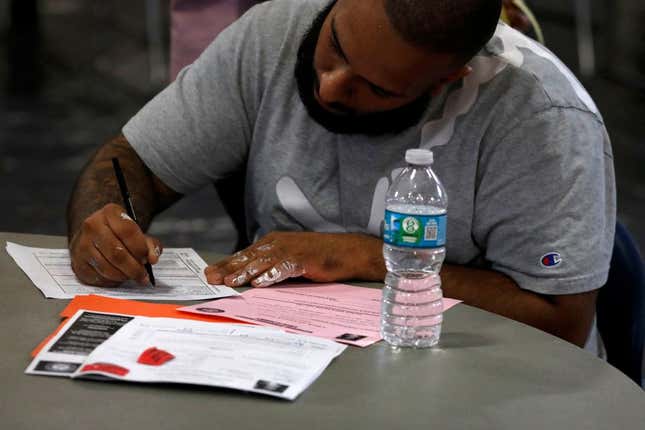
A recent filing by the Justice Department claims Florida Republicans intentionally targeted Black voters with restrictions which will surely hamper turnout for the upcoming midterm election, according to The Guardian. This stems from Florida’s SB 90 law wanting to restrict the availability of absentee ballot drop boxes, regulations for third-party voter registration groups, and a ban on providing food and water to people standing in line to vote with new laws.
The Department of Justice stated to a federal appellate court that they agreed with US District Judge Mark Walker’s ruling to block new restrictions for now. In particular, the DOJ felt that Florida lawmakers enacted these restrictions because of the surge in Black voter turnout during the 2020 Presidential election. 1.9 million Black voters are said to reside in Florida as per the state’s Divison of Elections. U.S. court of appeals for the 11th circuit paused that ruling earlier this year while considering an appeal from Florida officials.
“The district court’s core factual findings are that, in the face of surging turnout in the 2020 election, the Florida Legislature responded by enacting provisions that impose disparate burdens on Black voters,” DoJ lawyers wrote in their brief. “Which were chosen precisely because of those burdens to secure a partisan advantage. The court’s findings of discriminatory intent are a permissible view of the record based on the entirety of the evidence.”
While Florida officials claim the law doesn’t discriminate against Black people, the DOJ believes it violates Section 2 of the Voting Rights Act, which prohibits racial discrimination in voting practices. In addition, Democratic attorneys general from 16 states filed a “friend-of-the-court brief” to ask an appeals court to reject those restrictions.
As Orlando Weekly notes, officials such as District of Columbia Attorney General Karl Racine and New York Attorney General Letitia James stated, “the use of drop boxes, and mail ballots more generally, are well-established practices in Florida and around the country, and neither has given rise to substantial fraud.”

